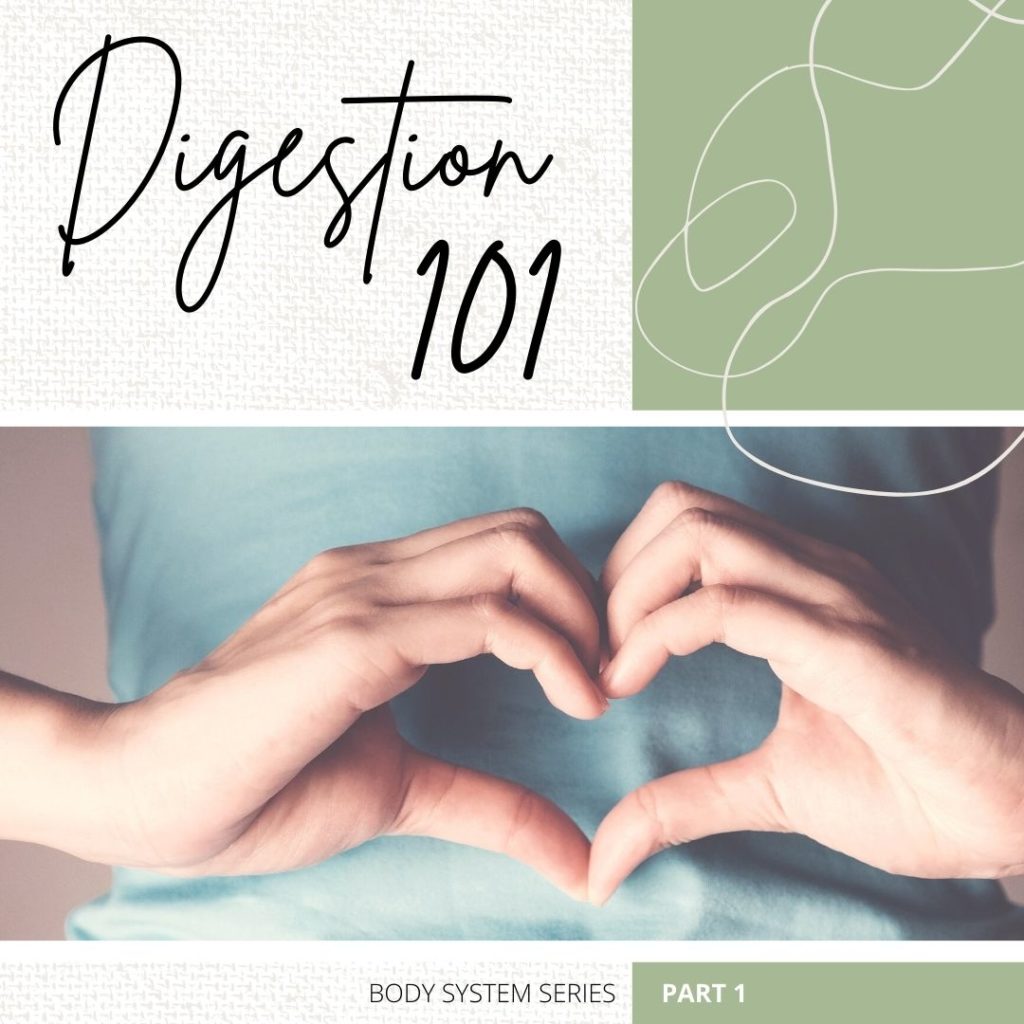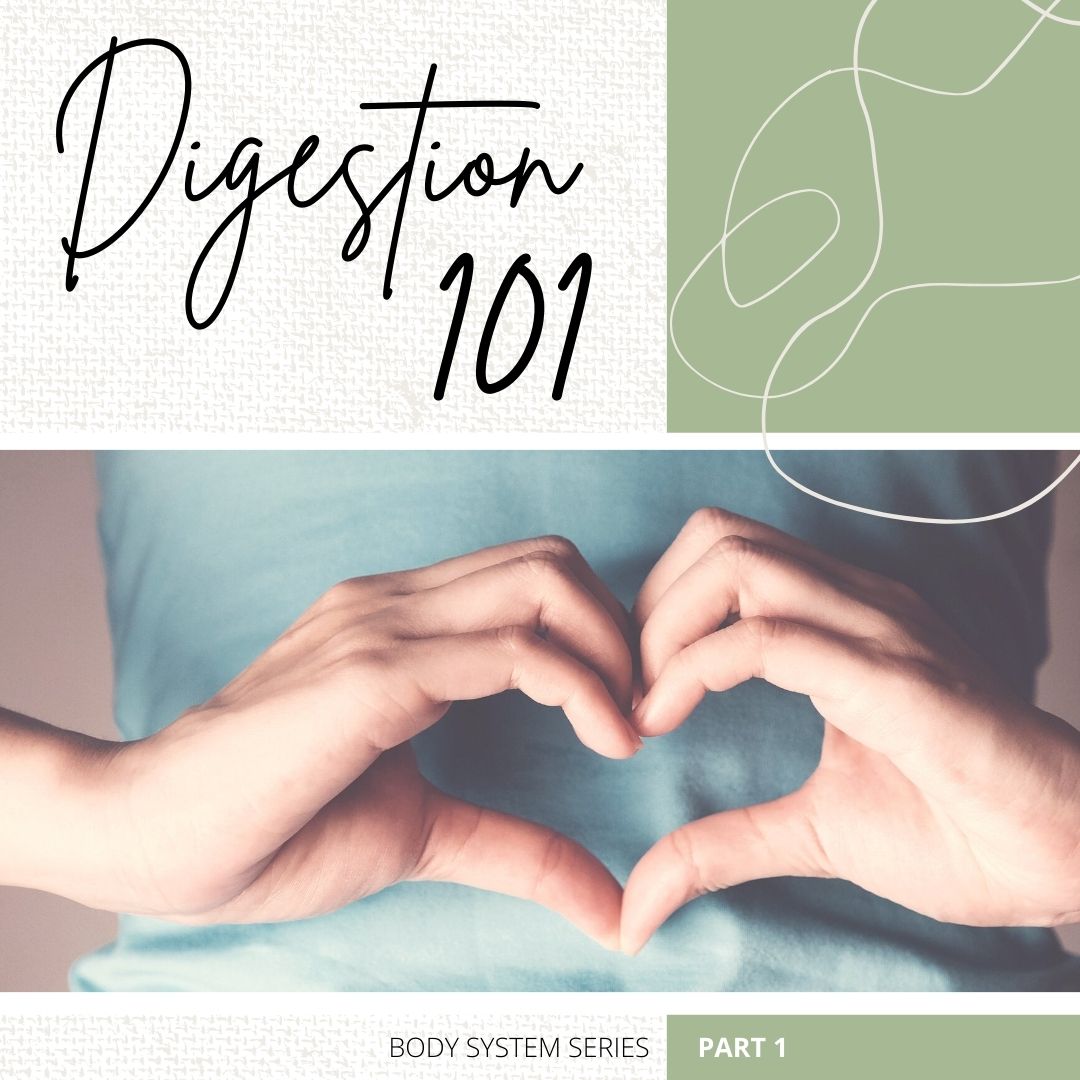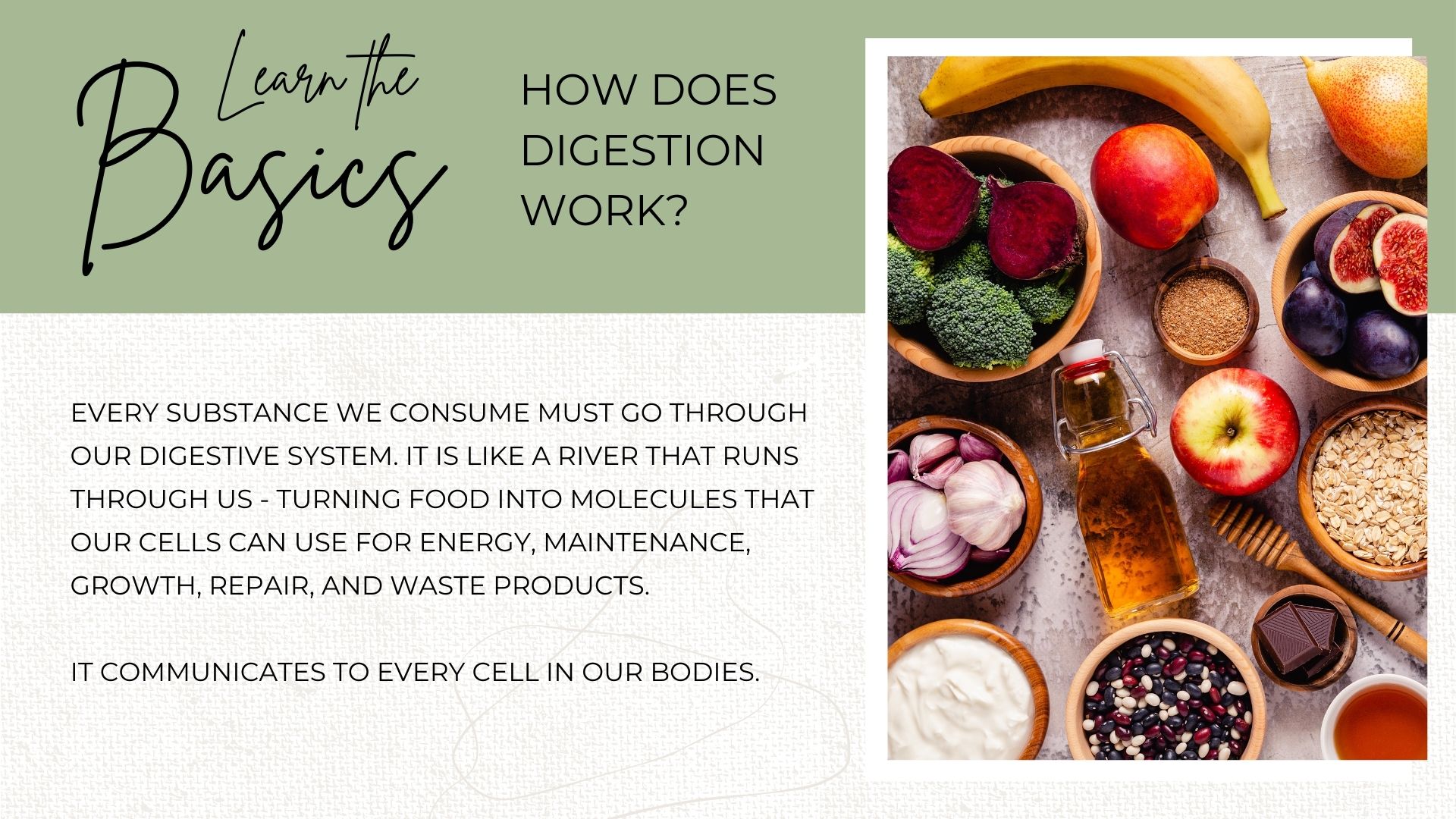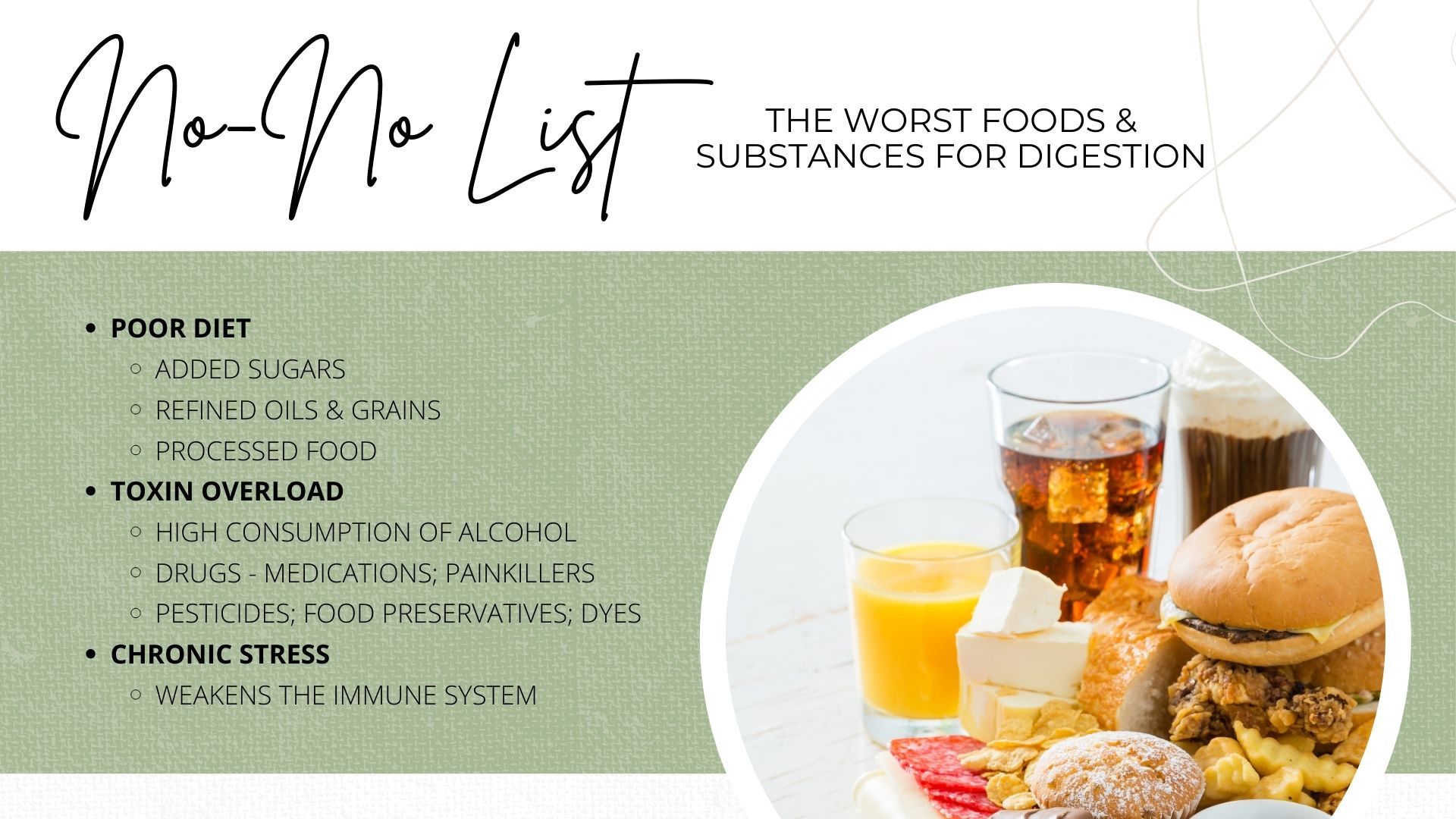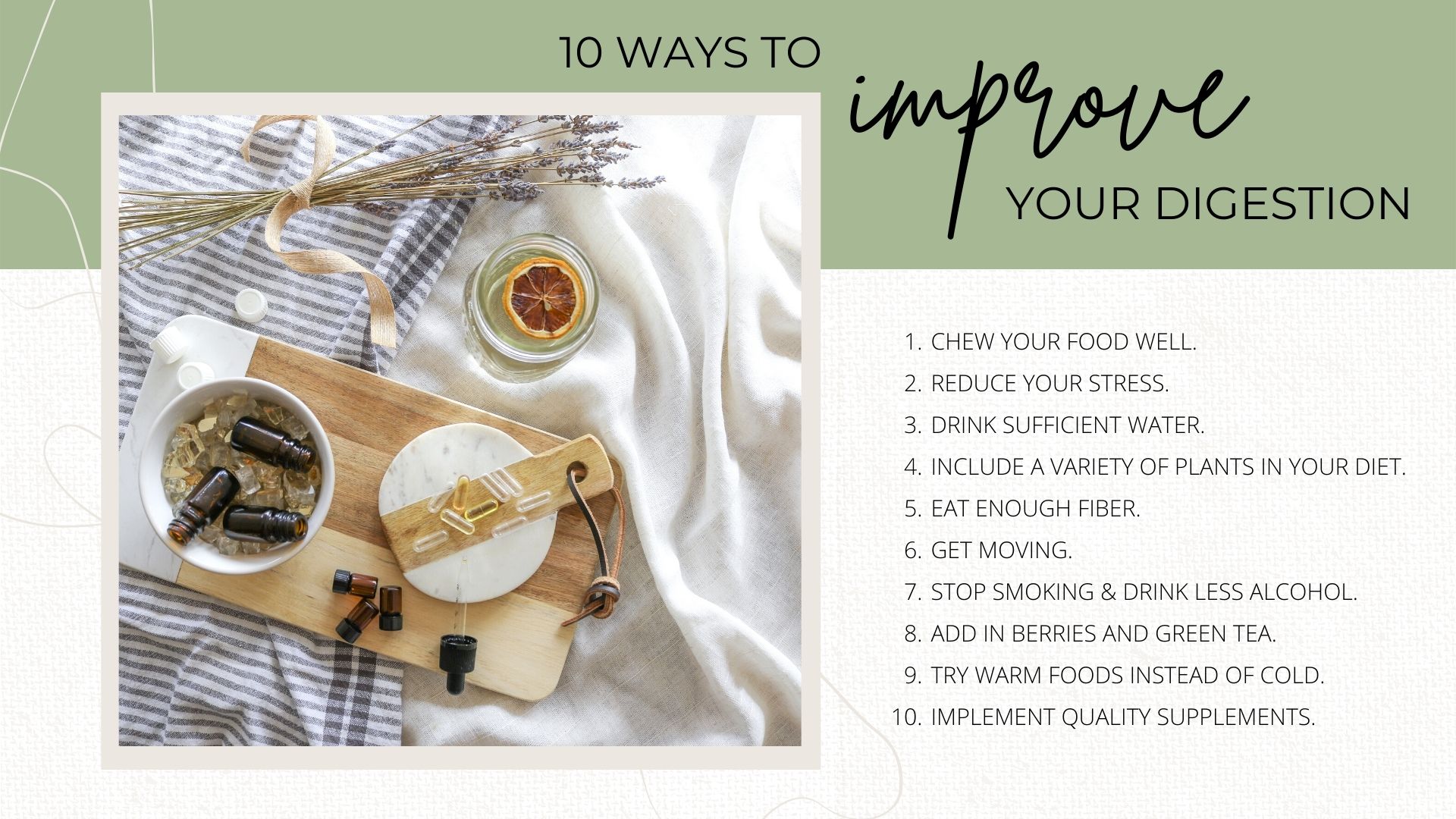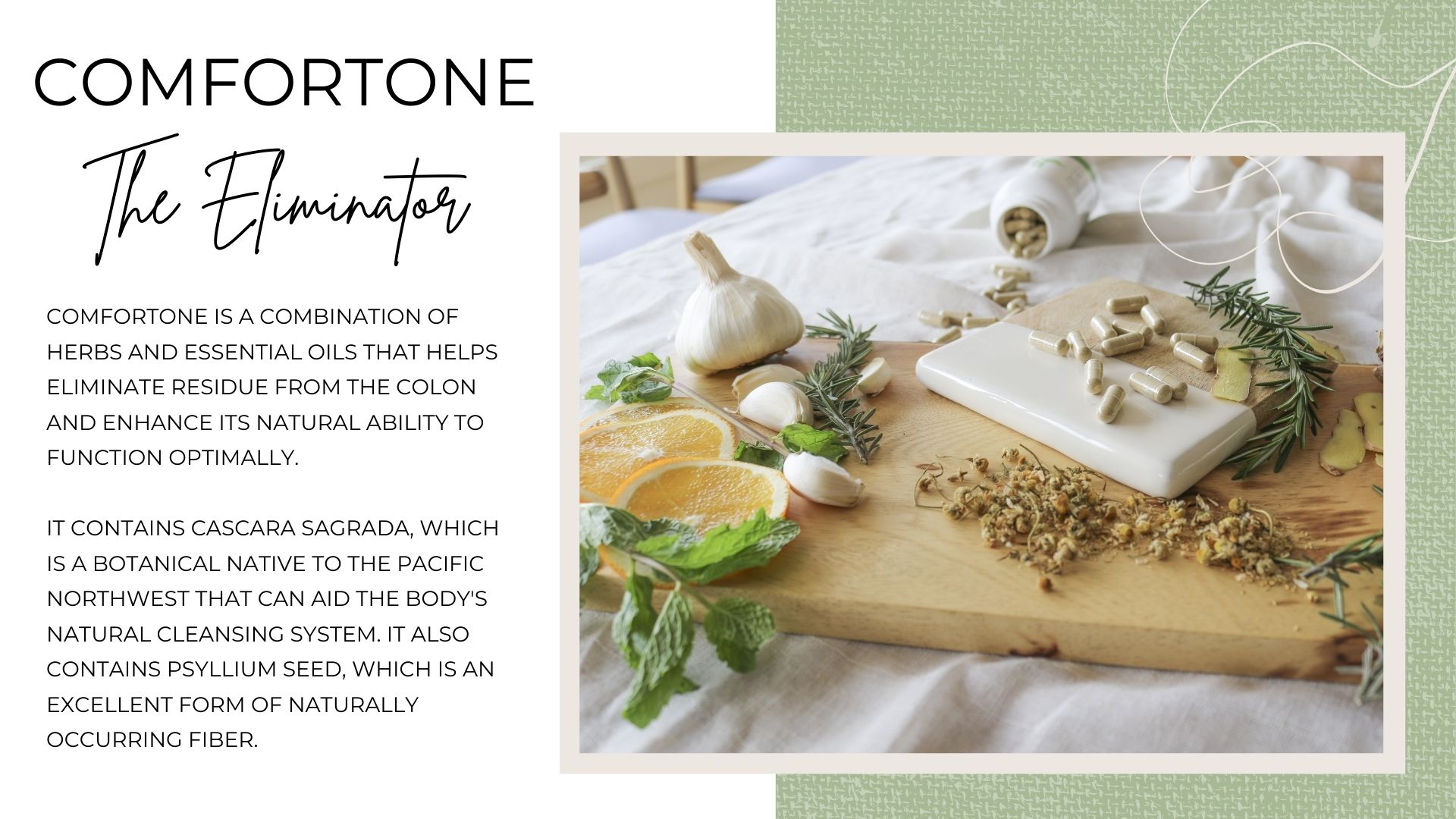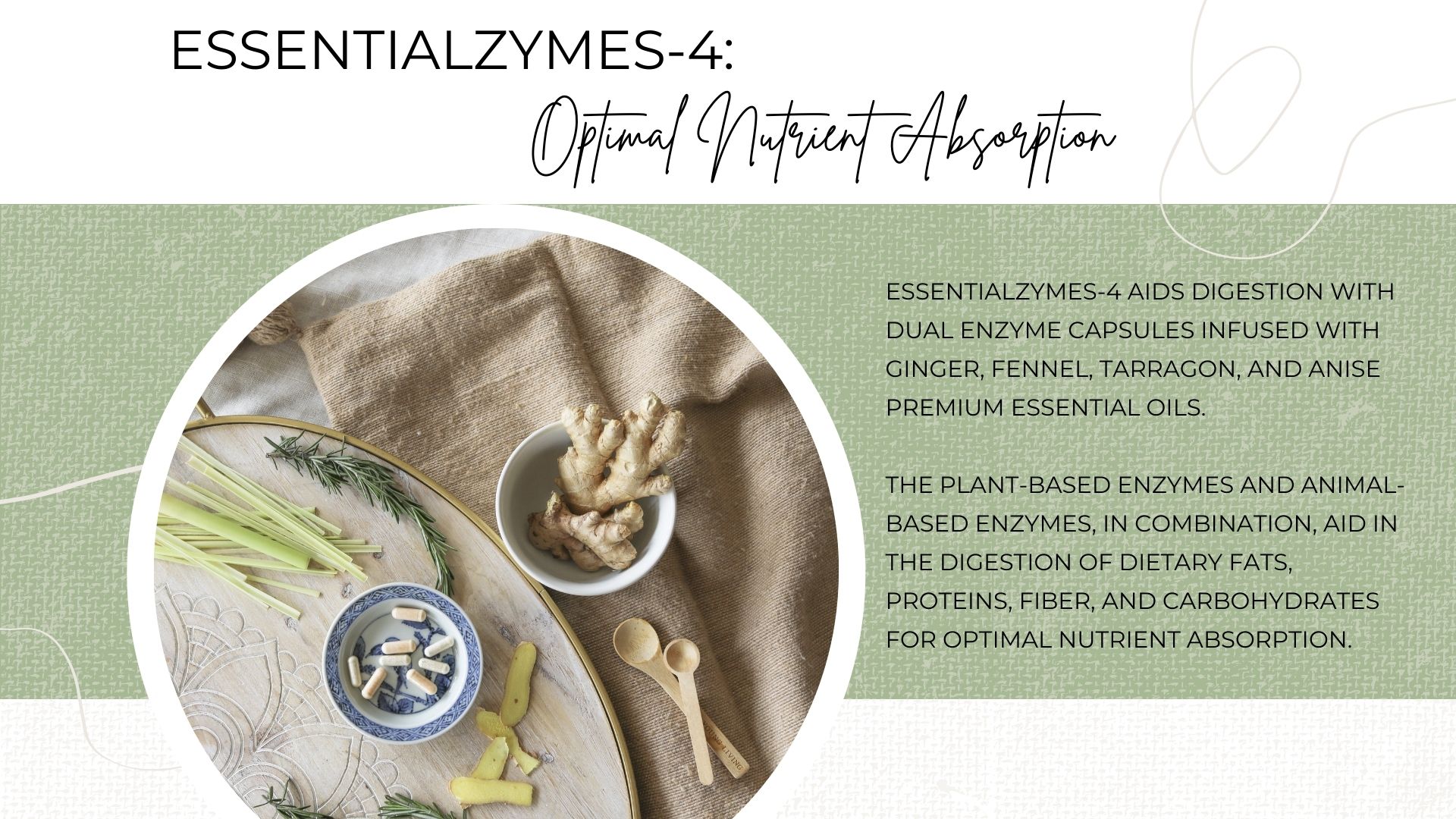Our digestive systems often get overlooked and unknowingly abused. We consume and we consume, without REALLY ever stopping to consider if our digestive system is supported well. And with the typical foods served and offered these days – packaged and processed, most with little to no nutritional value – our digestive system continues to take a backseat to our busy lives. When the digestive system continues to go unsupported you can expect to see things like fatigue, skin irritations, headaches, reflux, ulcers, constipation, bacterial overgrowth, and even things like irritable bowel syndrome, Crohn’s disease, and colon cancer. It’s certainly not a system you want to ignore.
Today – we are going to stop and make a step in the right direction. We are going to cover the basics and get you set up to start making some positive changes in this department. When you take a bite of that apple, what happens to it and where does it go from there? What things can do major damage to your digestive system and what things can help it work fluidly so you can avoid that long list of potential hazards to your body? You’re going to find out – so stay tuned!
Learn the Basics: How does digestion work?
Every substance we consume must go through our digestive system. It is like a river that runs through us – turning food into molecules that our cells can use for energy, maintenance, growth, repair, and waste products.
It brings nutrients to our cells, helps run our metabolism, makes vitamins, and is closely connected to the function of our immune system. This complex web of muscles and organs even sends messages to our brains and plays a major role in the endocrine system (hormones) and cardiovascular system. Think of it like an irrigation system – a large source of water gets narrower and narrower as it brings water out to small portions of the field. For optimal health and function of the plants, that water must remain unblocked. The same goes for the body.
If your digestive system gets “blocked” and things don’t flow as they should, your cells lose their capacity to function fully. You could feel tired and sluggish, experience brain fog, see changes in the skin, and even develop symptoms of illness. Clearly, it’s important that we support this system as it communicates to EVERY cell in our bodies. Let’s take a quick trip through the digestive system and see what this marvelous system entails.
- Brain: Even before you take a bite, your brain starts to imagine what that food will taste like. Your digestive juices, saliva, enzymes, and digestive hormones start to flow in anticipation of what’s to come.
- Mouth: The salivary glands soften food while your teeth chew and increase the surface area of the food.
- Esophagus: This is the tube that passes food from the mouth to the stomach. At the bottom of it is a little “door” called the esophageal sphincter, which keeps stomach acid and food from coming back up.
- Stomach: This is your body’s blender. Bits of food mix with acid and enzymes, breaking down even further and turning into a soupy liquid called chyme (pronounced kime).
- Small Intestine: Here is where your food is completely digested and nutrients are absorbed. It’s made of three parts: the duodenum, the jejunum, and the ileum – each section absorbing a different set of nutrients.
- Large Intestine: The main job here is to remove water from what is left of your food; it also absorbs some nutrients and forms stool. After the stool is well formed, it gets pushed into the descending colon and into the rectum, where it exits the body.
We’ve talked about HOW the digestive system works, now we are going to dive into some more practical information. What can cause your digestive process to break down or malfunction?
The first main cause of digestive dysfunction is poor diet. Foods with added sugars, refined oils and grains, processed food, fast food, fried food, synthetic food additives, and even conventional dairy products have the potential to disrupt the digestive process. Sugar can actually feed the growth of yeast, candida, and bad bacteria. Bad bacteria then creates exotoxins, which cause damage to healthy cells and can even eat through your intestinal wall causing something called “leaky gut.” Certain tiny particles that should never be able to enter your bloodstream start to make their way through the intestinal wall, which could lead to a potential laundry list of problems like autoimmune disease, irritable bowel disease, food sensitivities, thyroid problems, and more.
The second main cause of digestive dysfunction is toxin overload, which includes a high consumption of alcohol and drugs. Our liver has to process all of these toxins. It detoxifies what it can, but if it can’t break it down, it will store it there and in other tissues within the body. Things like radioactive substances, pesticides, food preservatives, and dyes can be stored. Not only can the liver take a beating, but so can the intestines. Unfortunately some medications like antibiotics and NSAIDs (think painkillers) can irritate the intestinal wall. Antibiotics can also reduce the good bacteria in your gut, which you need to support your immune system.
The third main cause of digestive dysfunction is chronic stress. I know this isn’t necessarily a food or substance but it can play a major role in how the gut functions. Stress weakens your immune system and can reduce your ability to fight off things like viruses and bad bacteria.
Now for some ways to HELP your digestive system…
- Chew your food well. If you aren’t chewing your food thoroughly, the rest of your digestive system will have to work harder to get it broken down. Chewing can help reduce gas and indigestion as well. It even stimulates the parotid glands to release hormones that stimulate the thymus to produce T cells in the immune system.
- Reduce your stress. Chronic stress lengthens the amount of time that food stays in your stomach. We don’t want that! It can also lead to issues like IBS, inflammation, and ulcers. Do yourself a favor and remove some of the stressors in your life and start incorporating more stress-relieving activities like yoga, meditation, reading, listening to music, and prayer.
- Drink sufficient water. Too little water on a daily basis can lead to constipation. Drinking adequate water – half your body weight in ounces per day – can help food pass through the intestines more easily. Some find it more beneficial to drink their water apart from mealtime.
- Include a variety of plants in your diet. Help diversify your gut microbiome with things like leafy greens, tomatoes, peppers, carrots, ginger, sunflower seeds, pumpkin seeds, and more.
- Eat enough fiber. Foods rich in fiber can help things move along in the intestines. There are two main types of fiber – soluble and insoluble. Insoluble fiber helps water attract to your stool, making it softer and easier to eliminate. Soluble fiber creates a gel in the system, which is said to prolong stomach emptying and allow for better nutrient absorption. Too much fiber can cause constipation and bloating, so increase your intake gradually and be sure to drink plenty of water.
- Get moving. Exercise is a great way to get the blood pumping and oxygen flowing to your organs. It gets the muscles in your GI tract flexing too. It even has a direct correlation to maintaining a healthy gut microbiome and immune system.
- Stop smoking & drink less alcohol. Smokers tend to get heartburn and peptic ulcers. They are also at an increased risk for Crohn’s disease, gallstones, liver disease, and cancers associated with digestive organs. Alcohol can decrease the gut’s ability to absorb nutrients, reduce digestive enzymes in the digestive tract, and can have an inflammatory effect on the intestines.
- Add in berries and green tea. Berries are rich in polyphenols, which promote good bacteria growth in your gut and limit harmful bacteria. The high antioxidant content of berries can also alleviate inflammation in the body. Green tea also contains antioxidants, including polyphenols, and has been shown to have anti-inflammatory, detoxifying, and immune-stimulating effects.
- Try warm foods instead of cold. Cold foods can take a while to break down and digest. Warm foods allow for easier digestion and fluidity within the digestive tract.
- Implement quality supplements. Consider taking probiotics, prebiotics, and even other gut-supporting supplements. Young Living has plenty to offer in this department. Life 9 is a highly potent probiotic with 17 billion live cultures from nine beneficial bacteria strains to support healthy immune function, maintain optimal metabolism, and promote normal intestinal function. MightyPro is a great-tasting blend of prebiotics and probiotics featuring over 8 billion active, live cultures specially formulated to support gastrointestinal, digestive, and immune health. Some other favorites would be NingXia Red (packed with berries and antioxidants), ICP Daily (contains 6 grams of plant-based prebiotics and 5 grams of soluble fiber), and JuvaPower (supports healthy liver function). You could even try some oils from the Vitality line to support digestive health like DiGize Vitality, Fennel Vitality, & Ginger Vitality. You can add a few drops to an empty vegetable capsule or simply add to your food or drink. We will discuss two more Young Living supplements you can try next!
Speaking of implementing quality supplements into your routine, let’s talk about one that’s gentle yet effective for that digestive system of yours – Comfortone. Comfortone is a combination of herbs and essential oils that helps eliminate residue from the colon and enhance its natural ability to function optimally. It supports normal peristalsis, which is the wave-like contractions that move food through the intestines.
It contains cascara sagrada, which is a botanical native to the Pacific northwest that can aid the body’s natural cleansing system. It also contains psyllium seed, which is an excellent form of naturally occurring fiber. You’ll also find bentonite and diatomaceous earth – go look those up! They’re great for cleansing! These key components combined with ginger and tarragon premium essential oils provide a natural method to assist the body’s digestive process.
Take 1 capsule 3 times daily. Drink at least 64 oz. of distilled water throughout the day for best results.
Enzymes are needed for every chemical reaction that occurs in the human body – to think, to control blood sugar levels, to build bone and cartilage, to break down hormones, to utilize vitamins and minerals – everything! Our body produces them, but sometimes we run a little low thanks to things like poor diet, medications, and exposure to toxins. Cooked, packaged, and processed foods are enzyme depleted. Fresh, locally grown or fermented foods are a much better choice and can be an excellent source of enzymes. Since it’s not always feasible or desirable to eat fresh or fermented foods, supplementation can be a great option. Young Living has several enzymes to choose from, but Essentialzymes-4 is one of my favorites!
Try Essentialzymes-4! It aids digestion with dual enzyme capsules infused with Ginger, Fennel, Tarragon, and Anise premium essential oils.
These capsules use time-release technology. The plant-based enzymes are designed to release immediately upon entering the stomach, where the environment is conducive to the digestion of plant material. The animal- based enzymes are designed to target release in the lower intestine region, where the environment is better suited for the digestion of animal fats and proteins. In combination, these two capsules aid in the digestion of dietary fats, proteins, fiber, and carbohydrates for optimal nutrient absorption. That’s what we want!
Take 2 capsules (1 dual-dose blister pack) 2 times daily with your largest meals (4 capsules total).
Your body is an amazing web of intricate systems, all working together for one goal – to keep you alive and well – and feeling amazing, of course. The digestive system plays a crucial role in delivering nutrients, producing energy, regulating hormones, supporting your immune response, and so much more. If you want to make sure your body can handle all those things and then some, it’s important to give it all the support it needs! I hope this class left you feeling more equipped to do just that.
I mentioned two main supplements from Young Living plus a few other things that make it super simple to support your digestive system so let me tell you the most cost effective way to get them! Friends don’t let friends pay full price! Am I right?
If you haven’t had the chance to set up your own Young Living account just yet, now is the time to do that! I want to make sure you have access to all these incredible goodies that are sure to make your holidays even better.
Shoot us a message and we will make sure you know how to get things set up and get the best deal!
Basic Starter Kit Item No.: 26738 | Wholesale price: $25
Stress Away essential oil blend, 5 ml
AromaGlide Roller Fitment
10 Thieves Waterless Hand Purifier Sachets, 0.1 oz. ea.
Thieves Mints
2 NingXia Red 2-oz. samples
Essential Oils at a Glance
Clean Living Magazine [Click]
A nice add on to your order would be the story bundle with the top oils used in the company.
You can click the link to become a customer by yourself or Text Us: (989) 217-9233 and we will call you back and help you out.
Here is our sponsor ID# 1650088 so that We can be the ones who help you.
A Few Side Notes
- Information obtained here is meant for educational and informational purposes ONLY, and to motivate and empower you to make your own wellness journey based on your own research and partnership with your healthcare provider.
- The statements have not been evaluated by the FDA. These products are not intended to diagnose, treat, cure, or prevent any disease.
With love from our family to yours,
Rod & Maria Wagner


